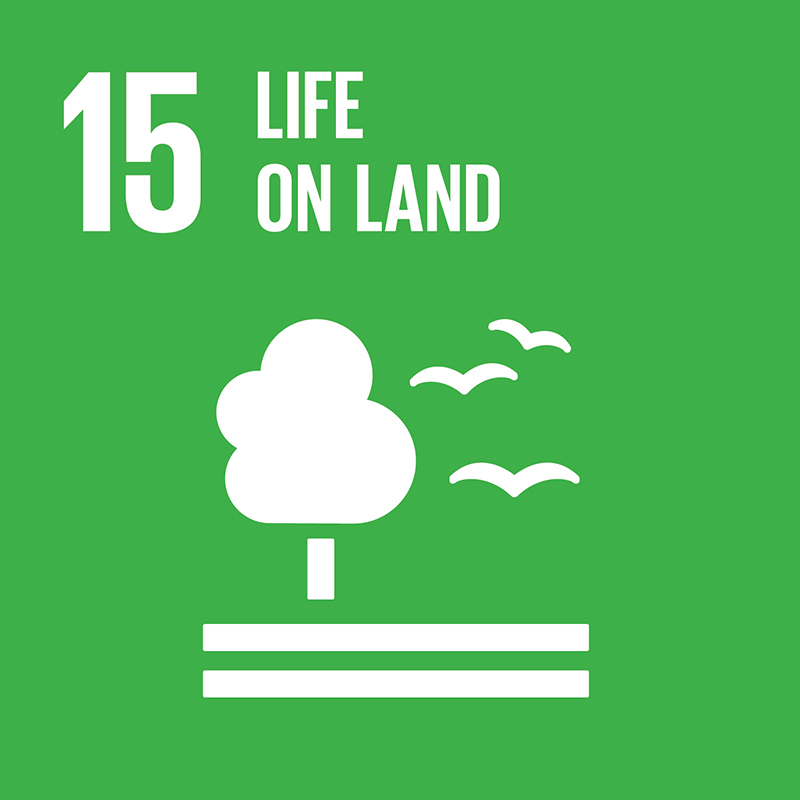15 Protect, restore and promote sustainable use of terrestrial ecosystems, sustainably manage forests, combat desertification, and halt and reverse land degradation and halt biodiversity loss
The Council of Europe Reykjavík Summit Declaration underlined “the urgency of additional efforts to protect the environment, as well as to counter the impact of the triple planetary crisis of pollution, climate change and loss of biodiversity on human rights, democracy and the rule of law”, while committing the Council of Europe to strengthening its work “on the human rights aspects of the environment and initiate the Reykjavík process of focusing and strengthening the work of the Council of Europe in this field”.
The Reykjavík process gathered steam in 2023 throughout the Organisation, and by decision of the Secretary General on 1 January 2024, Further to the Council of Europe Reykjavík Summit Declaration the Secretary General set up a Directorate of Social Rights, Health and Environment and a Department on the Reykjavík Process and Environment within, to make the environment a visible priority for the Organisation and promoting co-operation among member States.
The Department set up an Inter-Secretariat Task Force on the Environment and carried out a review of environmental activities across the Organisation, as the basis for formulating proposals for elements of a Council of Europe Strategy on the environment.
The Committee of Ministers entrusted the elaboration of the Strategy to an intergovernmental multidisciplinary group on the environment, the GME. The GME is currently drafting the Council of Europe Strategy on the Environment to strengthen the commitment to protecting human rights, democracy and the rule of law in the face of the triple planetary crisis of pollution, climate change, and biodiversity loss.
.
The Convention on the Conservation of European Wildlife and Natural Habitats (Bern Convention, ETS No. 104) promotes harmonised national policies and guidance for the conservation and the sustainable management of wild species and their habitats, including on land. It facilitates regional cooperation on conservation issues in Europe, through the wide-ranging participation of national, regional and local authorities, stakeholders, NGOs and civil society.
The Bern Convention is considered a privileged regional platform at European level for supporting the implementation of the Strategic Plan for Biodiversity of the UN Convention on Biological Diversity (CBD), which contributes to the achievement of Goal 15.
The Bern Convention has its own monitoring and standard-setting systems, including a complaint system, and is also recognised for its role in helping align nature conservation standards at the level of the European continent.
The European Diploma for Protected Areas is a prestigious international award granted since 1965 by the Committee of Ministers of the Council of Europe. It recognises natural and semi-natural areas and landscapes of exceptional European importance for the preservation of biological, geological and landscape diversity and which are managed in an exemplary way.
The Council of Europe Landscape Convention (ETS No. 176) states that “landscape planning” means strong forward-looking action to enhance, restore or create landscapes. It involves framing proper planning projects, more particularly in those most affected by change and badly damaged areas (for example suburbs, peri-urban and industrial areas, coastal areas). Presentation of national and regional reports on the implementation of the European Landscape Convention by the States Parties to the Convention is available within the framework of the Council of Europe Information System on the Convention, set up under Recommendation CM / Rec (2013) 4 of the Committee of Ministers to member States.
In 2021, the Parliamentary Assembly adopted Resolution 2400 (2021) Combating inequalities in the right to a safe, healthy and clean environment, following a report prepared by the Committee on Equality and Non-Discrimination.
At its November 2024 Plenary, the European Committee on Crime Problems approved the draft text of a new Council of Europe Convention on the Protection of the Environment through Criminal Law, replacing and superseding the 1998 Convention on the Protection of the Environment through Criminal Law (ETS No.172). The new Convention is expected to be adopted by the Committee of Ministers and opened for signature in 2025. The Convention will be the first legally binding instrument with global impact to address environmental crime, covering a broad range of criminal acts, such as pollution, hazardous waste, illegal logging, trading in wildlife species, mining and the disruption of protected habitats. A provision entitled “particularly serious offence” has been includedБ



